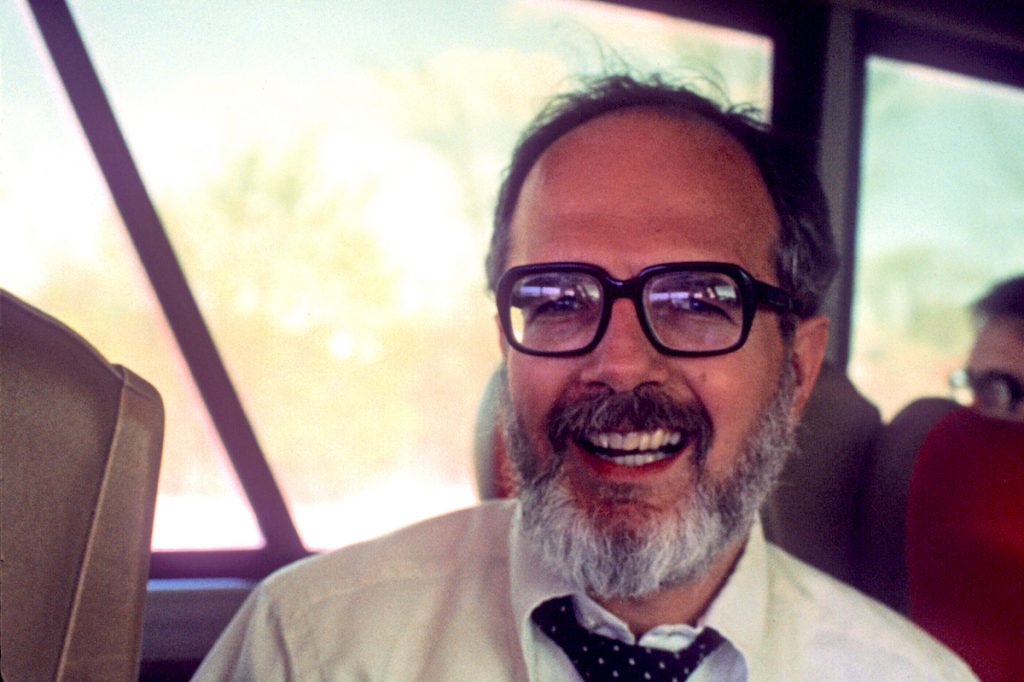Interview with Bill Hunter, Brian Joiner and Peter Scholtes (listen to the interview) on a Public Affair, National Public Radio about improving management practices in the USA. The interview is over 30 years old now but the better management ideas are as true today as they were then.
Sadly we have not improved management practices based on these ideas very much. There have been improvements in how many organizations are managed but those improvements are so slow that fundamental problems remain serious problems decades later.

Brian Joiner
Brian Joiner (quotes from the interview):
You cannot really produce quality in any cost competitive way by relying on inspection to achieve quality. The only way you can really achieve quality in the modern sense is by improving all the processes that go to deliver that product or service. And that requires that you study those processes. And when you study them you very often need to collect and analyze data to find what are the causes of problems.
[We place] a great deal of emphasis on identifying the causes of problems rather than shooting from the hip and jumping to solutions before you really know what the problems are…
Many many dollars, many many hours of time are wasted on “solutions” that are not really solutions.
Bill Hunter:
The problem that employees at Motor Equipment were aware of at the very beginning of this whole business, and for a long time previous – I mean years, was that the city of Madison did not have a preventative maintenance program for vehicles because a mayor said, many years ago said “we fix trucks and other things when they break and then we will save money because we don’t be fiddling with them before.
Well the people out there realized the city was just losing money with this policy so they gathered data, they put it together, they put together a solid case that nobody could argue with that the city should have a preventative maintenance program.
They were able to put together a presentation to the mayor and city council people making their case that there should be a preventative maintenance program. The mayor and the city council people there listened to this presentation of the data and they conclusion was a good proposal.
Another experience from the first street garage where workers presented a new problem that was occurring and wanted to fix the root cause of the problem instead of just treating the symptoms as those symptoms appeared. They took a couple people 1 hour a day for 4 days to find the root cause of the problem (which wasn’t part of their normal responsibility) and fix the system to prevent it from continuing to cause problems.
That kind of experience could not have happened if management wasn’t willing to listen to the workers and wasn’t willing to say to the workers “you have brains and you have ideas and why don’t you go out and see if you can solve it and I will back you up.” And that is what they did.
Bill on creating jobs people want to do:
If they are going to work with the attitude that part of my job is to figure out how we can make things work better around here it adds another challenge to the job which makes the work more fun and more enjoyable. It all points in the same direction it seems to me. These methods do feed into making jobs more interesting and morale going up and the job being better.
Managing Our Way to Economic Success: Two Untapped Resources by Bill Hunter.
Peter Scholtes
The significant difference is the scientific approach. Before workers had opinions and would express opinions. And management had opinions and they would express opinions… What we are teaching them is that opinions really don’t count, what counts is data… and that is what will determine decisions.
The change to basing decision on data and experiments instead of opinion and the person’s rank is profound.
You can’t work directly on morale. You work on other things and morale will come along with it.
This is a very important point. The way to improve morale is to improve the work. Eliminate things that drive workers crazy by making their work more difficult, by creating work that should never have to be done if the system were designed better. You improve morale by making the job better, by creating systems that allow people to take pride in their work and eliminate waste that frustrates them.
Related: Doing More with Less in the Public Sector: A Progress Report from Madison, Wisconsin – Interview of Bill Hunter on Improving Quality and Productivity in Organizations – Business 901 Podcast with John Hunter: Deming’s Management Ideas Today






















